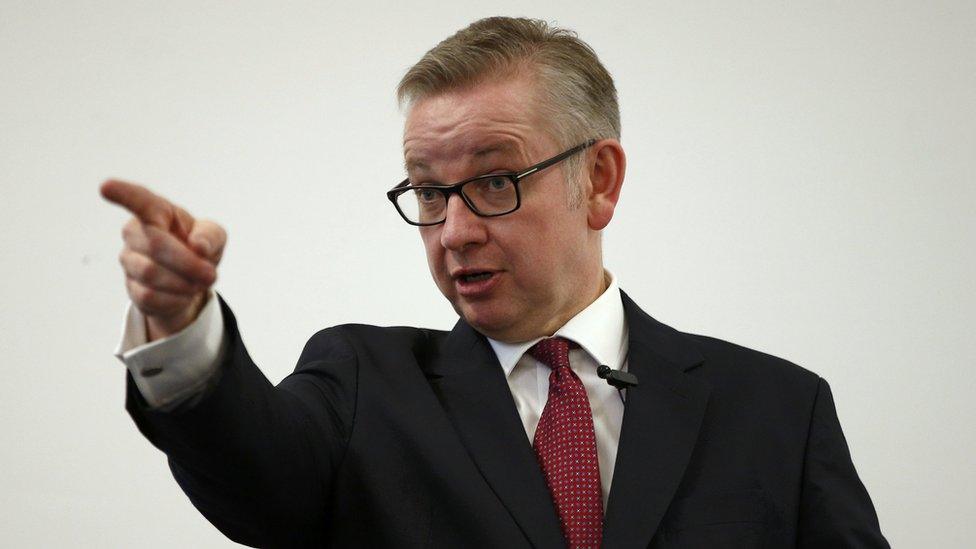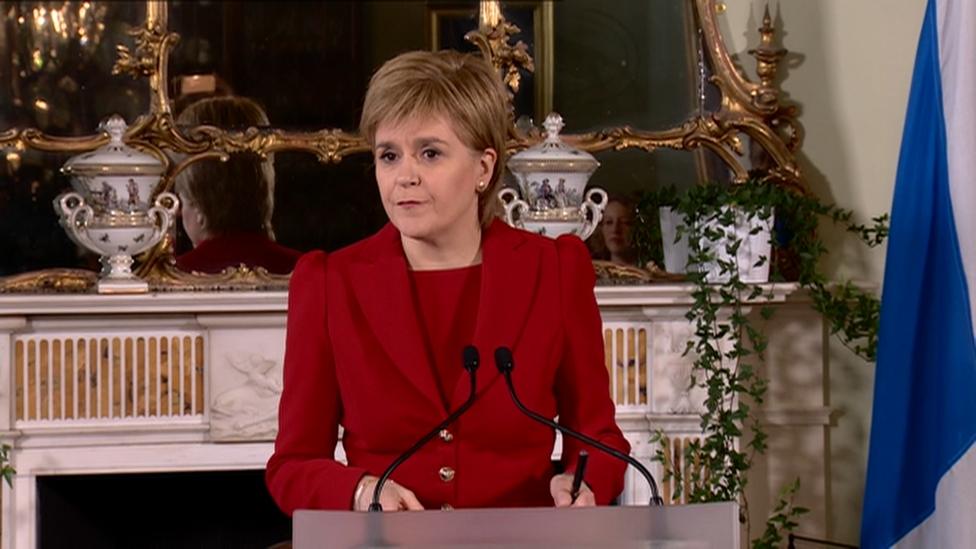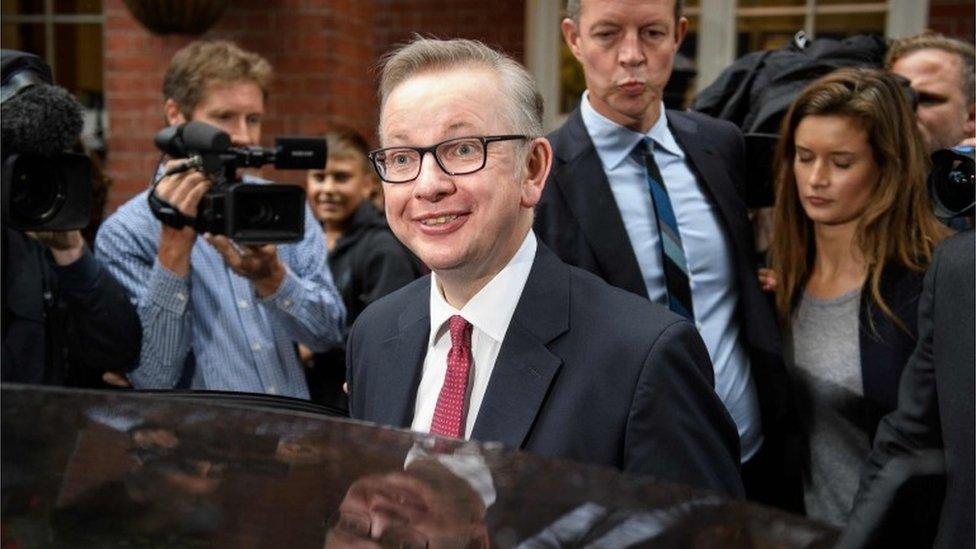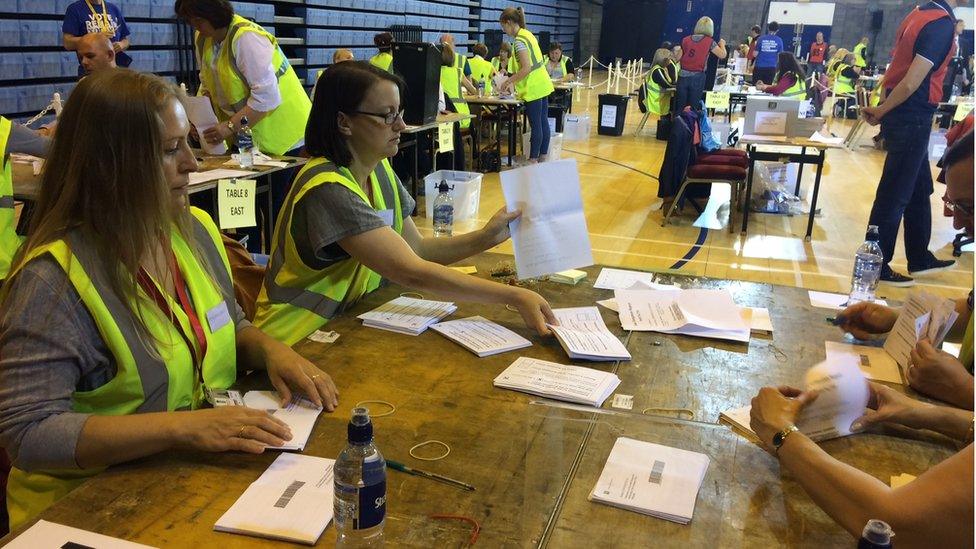Gove: Brexit vote raises 'profound questions' for Scotland
- Published

Mr Gove, who was raised in Aberdeen, is one of five candidates to replace David Cameron in Downing Street
Michael Gove, one of the candidates to replace David Cameron as prime minister, has said he does not think there will be a second Scottish independence referendum.
First Minister Nicola Sturgeon has said a new vote is "highly likely" following the EU referendum, where the majority of Scottish voters backed Remain.
Mr Gove said the Brexit vote raised "profound questions" for Scotland.
He faces challengers including Theresa May for the job of Conservative leader.
The leadership contest is the latest result of the EU referendum, which saw 52% of voters across the UK backing the country leaving the European Union.
However, people in Scotland voted by 62% to 38% to stay part of the EU, leading to questions over whether Scotland could seek a special deal or even try to break away from the UK.
Mr Gove, who was born in Edinburgh and raised in Aberdeen, said he wanted to be prime minister so he could "change the country".
He said the vote raised "profound questions" for Scotland, and that Ms Sturgeon has an "absolute constitutional right" to do what she thinks is appropriate.
When asked if, as prime minister, he would block another Scottish referendum, he replied: "I don't think we are going to have a second independence referendum."
'Robust Union'
Mr Gove also said he would treat Scotland, Wales and Northern Ireland with "respect" and work to "make things better".
"The vote to leave the European Union gives us the chance to renew and reboot the Union," he said.
"We are taking back control of policy areas like agriculture and fishing that are vital to the economies of Scotland, Wales and Northern Ireland, and the Scottish Parliament and devolved assemblies can enjoy new powers in these and other areas.
"I think we need to explore how we can develop a fairly-funded, flexible and robust Union for our new circumstances - and I will work across political divides, with respect, to build that new Union."
However, Holyrood finance committee convener Mike Russell said it was "absolutely outrageous" that a prospective prime minister was "using a Leave vote to imply that Scotland's budget could be slashed".
He said Tory leadership candidates should respect the fiscal framework agreement made between the two governments in February.

Nicola Sturgeon has said a second Scottish independence vote is "highly likely"
During the referendum campaign, Mr Gove claimed that a Brexit vote would hand extra powers to Holyrood, including control over immigration.
This was dismissed as "a fib and a half" by Ms Sturgeon.
Mr Gove is one of five candidates to take over as Conservative Party leader and prime minister.
The bookies' favourite is Home Secretary Theresa May, while the other contenders are Work and Pensions Secretary Stephen Crabb, energy minister Andrea Leadsom, and former Defence Secretary Liam Fox.
The leadership contest was thrown into turmoil when Mr Gove suddenly declared his candidacy on Thursday, having formerly backed Boris Johnson.
Mr Johnson subsequently bowed out of the race, leading to claims that Mr Gove had "betrayed" him.
Meanwhile, Scottish Labour leader Kezia Dugdale has met Mr Johnson's successor as London mayor, Sadiq Khan.
They discussed the impact of the Brexit vote on Scotland and London, and how they can work together to protect the economy in both places in the coming years.
- Published1 July 2016

- Published30 June 2016
- Published24 June 2016
